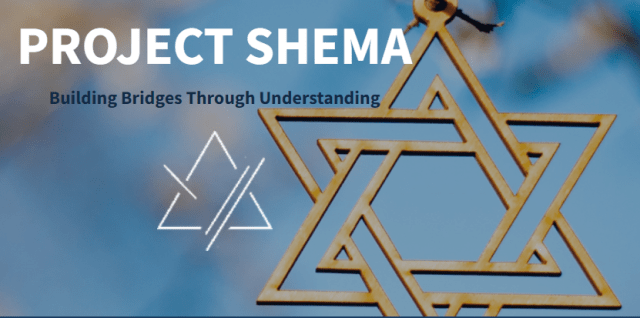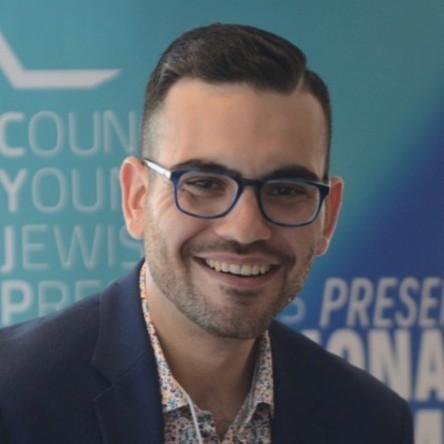Rescheduled: Project Shema: Support for Jewish Leaders. Understanding and Responding to Anti-Jewish Ideas
This session will NOT be recorded. Please make every effort to attend. Open to members in good standing of the ACC and GTM.
9 a.m. PDT/11 a.m. CDT/12 p.m. EDT
The debate over Israel and Palestine has grown more intense. At the same time, rising antisemitism globally has understandably elevated fears inside the American Jewish community, making these conversations even more complicated.
Project Shema trains and supports the Jewish community to nurture compassion for Jews and disrupt the spread of anti-Jewish ideas which can emerge even in well-intentioned conversations about Israel and Palestine. We want to ensure that important conversations around Palestinian justice do not close space for empathy with the Jewish people. Even if unintentional, rhetoric that may demonize or dehumanize Jews in Israel or the Disaspora has the potential to erode individual and/or collective Jewish safety. We believe it's possible and necessary to hold space for the past and present trauma of Palestinians and the Jewish people.
What is Project Shema?
Project Shema trains and supports the Jewish community and allies to understand and address contemporary antisemitism, with an emphasis on how anti-Jewish ideas can emerge in discourse around Israel and Palestine.
Founded by Jewish leaders with deep ties in social justice movements, Project Shema brings a fresh and humanizing approach to these challenging issues. Named after the Hebrew word Shema, which means “to hear”, “to listen”, or “understand,” Project Shema works to deepen understanding and build compassion and bridges across communities. We provide a truly unique, nuanced approach to antisemitism education for those working to ensure inclusive spaces for all Jews.
Since its founding, Project Shema has supported Jewish institutions and major corporations, locally and globally, to explore these complex issues.
During this 90-minute training program tailored for this moment with robust support resources.
- Clear analysis on how/why anti-Jewish ideas are spreading in the left.
- A proven strategy designed to address that challenge.
- Tactical guidance including key ideas to share and how to address hard questions including about colonialism and genocide.
What you learn:
- Why anti-Jewish ideas go unnoticed and unchecked in progressive spaces.
- A proven strategy for engagement to build empathy and create space for nuance.
- An effective way to explain Jewish identity and antisemitism to progressive peers.
- A framework to understand, spot, and explain when rhetoric undermines Jewish safety.
- A process to navigate the most challenging questions with practical tips for responding.
Our presenter:
Zachary Schaffer is a facilitator, educator, and organizer based in Bedstuy, Brooklyn. He currently serves as the Co-Founder and VP of Community Engagement with Project Shema, a training and support organization built by progressives to help our Jewish community challenge anti-Jewish ideas and nurture compassion for Jews on the progressive left. He has trained thousands of leaders across North America in depolarization, storytelling, antisemitism, and the Israel-Palestinian conflict. Zach has served as a facilitator and consultant with several organizations including Ta'amod, Resetting the Table, and Jewish Women International. He is the proud President of Friends of Roots, a grassroots coexistence and liberation movement of Israelis and Palestinians in the West Bank. He also serves on the North American Board of the Union for Reform Judaism where he co-chairs their Racial Equity Diversity & Inclusion Committee, and as a member of the Commission on Social Action, where he helps to set the social justice agenda of the Religious Action Center.
Download their program flyer to share with your own congregation.



